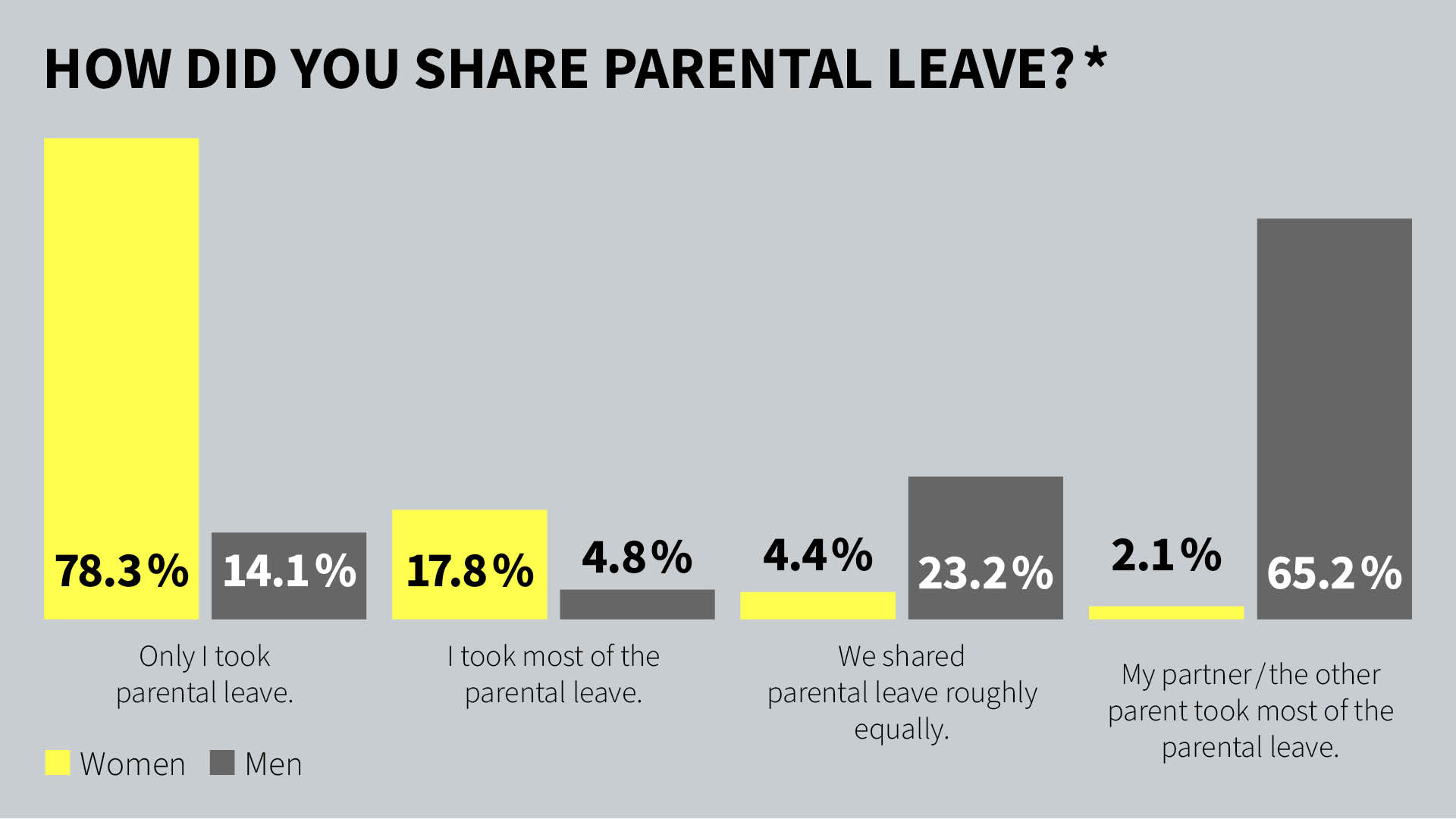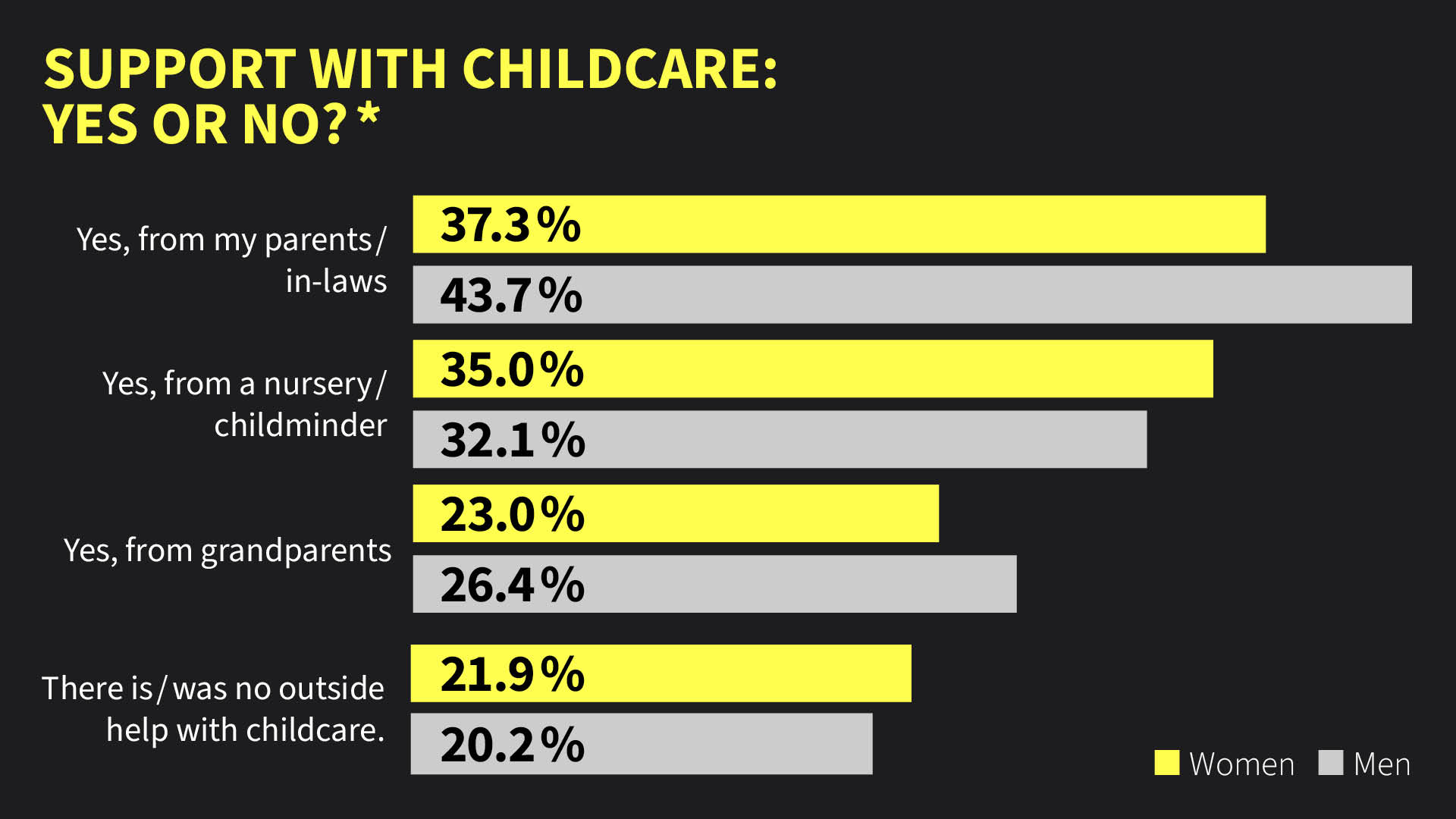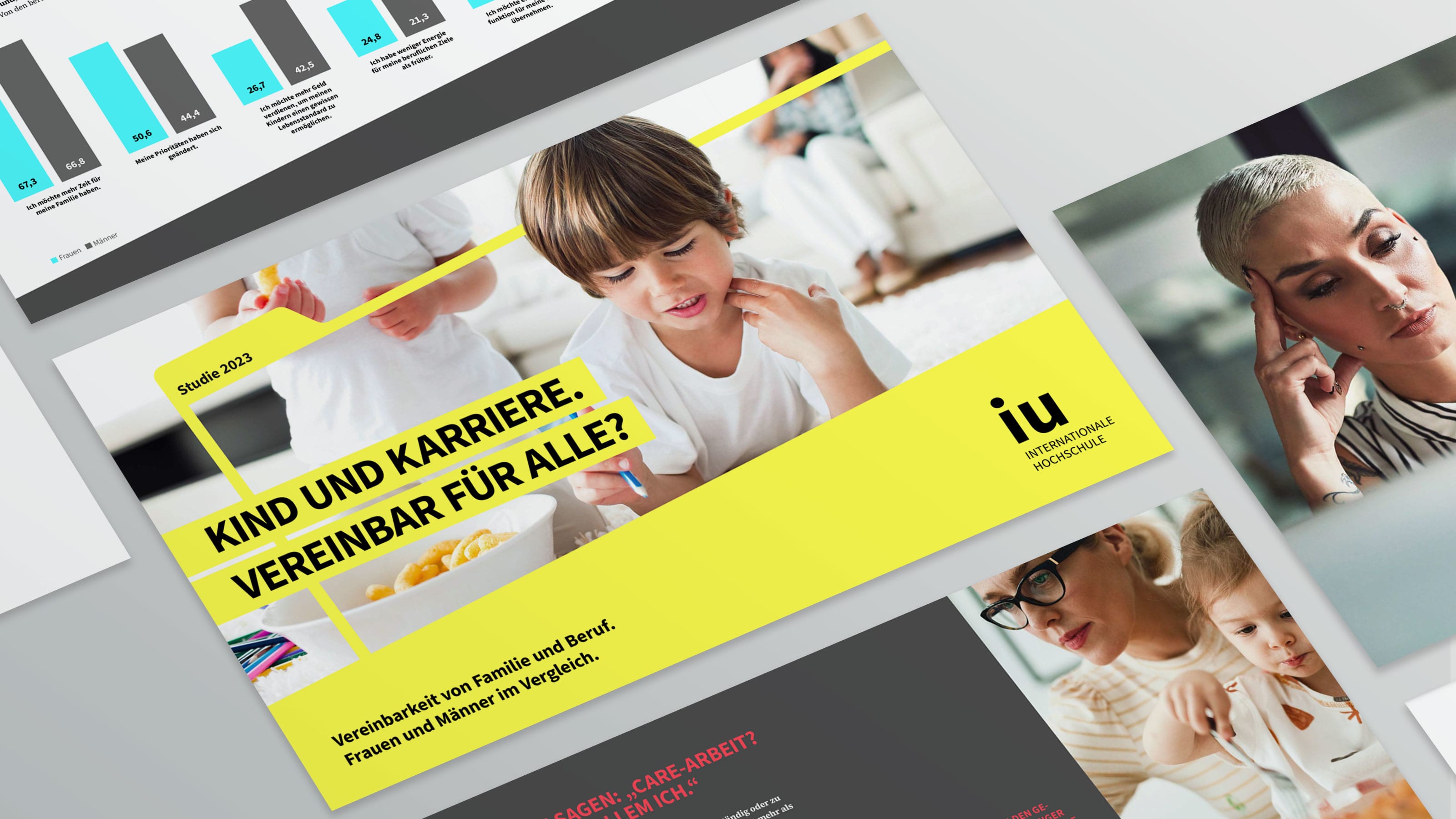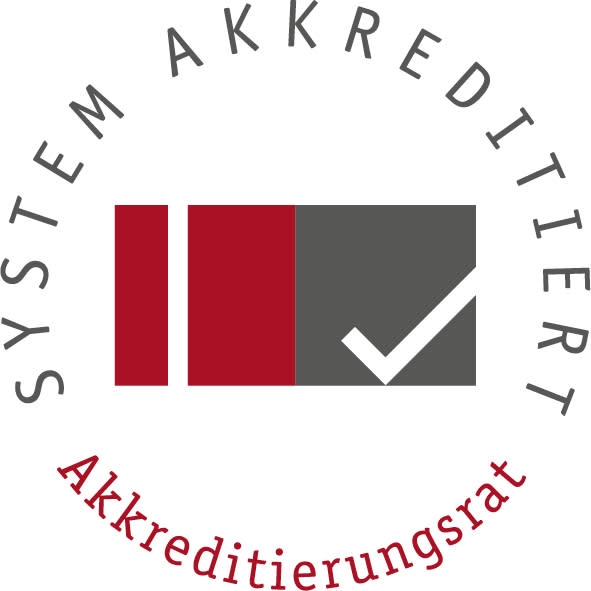From parental leave to care work: women and men in comparison
Who takes a back seat when children come into life or the family grows? The representative IU study "Kids and Career. Can everyone have both?" shows how working men and women in Germany divide up parental leave and organise family and career - or in other words, what is the state of equality in Germany?
Key findings of the study: Women put their careers on the back burner more often than men. Almost one in five women (19.4 percent; men: 11.3 percent) say they have changed their career goals due to the birth of children or parenthood. Above all, to have more time for the family. In addition, mothers take parental leave significantly more often than fathers. Since 2007, men have had the same entitlement to parental leave as women.
The differences between the sexes are also significant when it comes to the division of childcare: many women say that they do most of the care work. 30.2 percent of women even say: I do all the care work.
What influence does this imbalance have on careers and society? Prof. Dr Alexandra Wuttig and Prof. Dr Malte Martensen from the IU International University discuss in detail the status quo as well as the scope for action by politics, business and society for more parity in reality.
View the study in PDF*Although gender requires more than a binary classification into female and male, the data currently available for such an analysis is limited. In general, the numbers are too small to allow a statistically significant breakdown by additional variables. Therefore, for the purposes of this study, gender is considered in a binary system.
Compatibility of family and work: the facts
is very important to rather important for 95.3 % of all respondents in work design.
71.3 %
of working women with children were already on parental leave.
of working men with children were already on parental leave.
71.0 %
of working women with children in the household say that they take on care work completely or to a large extent.
22.5 %
of working men with children in the household state that they take over the care work completely or to a large extent.

Care work has an enormous social value
„We have to overcome the mindset of distinguishing between paid work and caregiving. The latter is often under-appreciated, despite having enormous societal value. We need to bring about cultural change and push for actual family-friendly workplaces. The software company SAP is setting a good example by giving fathers six weeks of paid leave after the birth of a child. You can see that German companies can also play a pioneering role here. And, of course, managers play a key role and must act as role models.“
Prof. Dr Alexandra Wuttig
Chancellor of IU International University of Applied Sciences and Professor of Innovation and Entrepreneurship
Family, work and career: How does that work?
Family is one thing; job and career are another. How well can the different aspects be reconciled for working parents in Germany? Insights into career paths - and the distribution of parental leave and childcare.

Career and family: Children change career goals, especially for women
Around two-thirds of working men and women have already experienced turning points in their professional lives. What is striking here is that 19.4 percent of women have changed their career goals due to parenthood, while men mentioned this reason much less frequently (11.3 percent).
*Excerpt of answers to the question: „Was there a point in your career when you realigned your professional goals?“
Source: IU study „Kids and Career. Can everyone have both?"

Division of parental leave: What working parents say
In Germany, working mothers take parental leave significantly more often than working fathers: 78.3 per cent of women who have taken parental leave state that they have used the entitlement to parental leave alone. Only a few respondents stated that they have shared parental leave equally.
*Excerpt of answers to the question: „How did you share parental leave?“ (Only respondents with children and who took parental leave.)
Source: IU study „Kids and Career. Can everyone have both?"

Support with childcare
More than 20 percent of working parents have or had no childcare support, according to the IU study. Among the mothers and fathers surveyed with support, it is primarily parents and/or parents-in-law who step in to care for the children.
*Excerpt of answers to the question: „Did you or do you and your partner receive any outside help with childcare?" (Only respondents who have children.)
Source: IU study „Kids and Career. Can everyone have both?"

Family changes careers in lasting ways
„Parenthood often solidifies the stereotypical gender roles that didn’t even come into the equation before starting a family. Fathers want to earn more money, women rethink their career goals. Societal pressure, structures and clichés reinforce these individual tendencies and behaviours, which are still reflected in employment rates and career paths even years later.”
Prof. Dr Malte Martensen
MBA Programme Director and Professor of Human Resources Management and Organisations at IU International University of Applied Sciences

The IU study on the compatibility of family and work
What about gender equality in Germany? All study results and statements - read them now in the IU study.
View the study in PDFMore info on the IU Study
What you get for free
Information on study content & electives
Information on career prospects
Information on financing options






